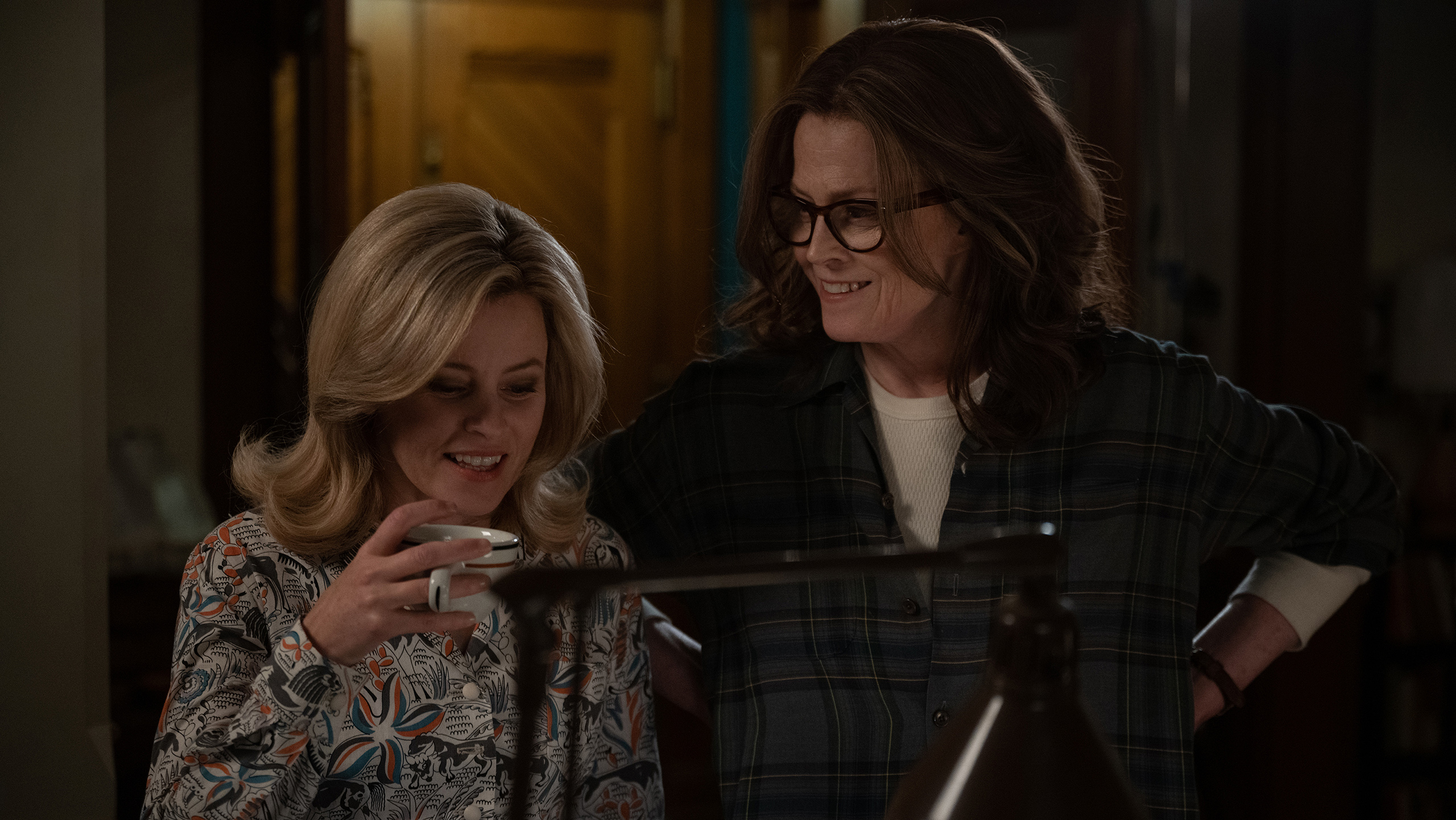
The recent Supreme Court decision in Dobbs v. Jackson Women’s Health Organization which found that the United States Constitution does not confer a right to abortion was a landmark case that gave American states the right to institute their own restrictions on the procedure almost 50 years after it was legalized and will undoubtedly change the face of politics and abortion activism for the foreseeable future. For millions of women across the country, the ruling was a harrowing callback to a darker time to which they’d never thought we’d return and that they’re fearful of having to navigate. A timely new film documents this time period and how the women of the era rallied together to help each other.
Call Jane winds the clock back to 1968 Chicago as political upheaval engulfs the United States and surrounds suburban housewife Joy (Elizabeth Banks), who leads an ordinary life with her husband Will (Chris Messina) and daughter Charlotte (Grace Edwards). Soon, Joy learns she is pregnant again but due to congestive heart disease that threatens her life, the pregnancy must be terminated. As abortion is not legal in Illinois, she and Will must petition the local hospital for a medical exemption for an abortion, which the all male board rejects. Soonafter, she sees a sign on a light post while running errands, “Pregnant? Need help? Call Jane!” “Jane” ends up being The Jane Collective, a real life group of women who provided thousands of covert abortions during a four-year period in Chicago, led in film by a woman named Virginia (Sigourney Weaver). The conservative, apolitical Joy soon finds herself entwined with the group, learning lessons that change her life.
Call Jane is a compelling story about a woman’s journey of self discovery; one that at the beginning of the story she isn’t aware that she needed, but once she’s forced into a life altering decision, she steps into a world she didn’t know existed and find that it needs her as much as she needs it. The film opens with the politics of the era literally coming right to Joy’s doorstep as the chaos of the 1968 Democratic Convention unfolds directly outside of the hotel she’s visiting. This metaphor for history banging at Jane’s door is a harbinger of things to come when her circumstances thrust her deeply into the underground support network that women in a pre-Roe v. Wade world have been forced to create. Jane’s initial reluctance in associating with , going from muted judgement to finding their worth and purpose is the lifeblood of the film and what provides it with its relevance (aside from the real life parallels). Elizabeth Banks does a superb job bringing Joy’s path to life, transforming from a wide-eyed, naive housewife to an assertive, enterprising confident woman whose mind has opened to realities she was unaware just one year earlier. The journey on which she embarks serves as a stand-in for the journey that many women not only of Joy’s era, but throughout the history of the larger western world have embarked on as they find their voices amidst a society that often prefers them silent. This everywoman story of the main character serves Call Jane well in connecting it with the audience. The supporting cast performs capably as well, led by Weaver as Virginia who offers some of her best work in years as the strong willed and savvy leader of the Jane Collective. It is largely her character that serves as the personification of the work that was done by the Collective and the care and safety valve they represented for women who needed somewhere to turn to during an unkind time, or for women who didn’t realize they needed them at all like Joy.
Despite, or maybe because of, how topical and relevant this film is, it can feel heavy handed and a bit obvious in parts. One scene in particular that best captures this is a spat between the Janes that sees Gwen (the rising actress Wunmi Mosaku) battling it out with Virginia over the need for greater intersectionality within the group so that black women such as her have a greater seat at the table. Call Jane obviously wears its liberal feminism on its sleeve, so this scene comes off as a Twitter thread or a Tumblr post set to screen, more preachy than storytelling. It’s a slight misstep of affirming your targeted audience’s viewpoints and pre-acknowledging any looming criticism in a lefty political movie that largely avoids this modern pitfall. Despite this instance, the film does well in having a viewpoint to communicate without losing sight of a quality story or coming across as if its wagging its finger at viewers.
Call Jane is an engrossing story that provides a snapshot of a bygone era that still feels all too familiar and pertinent. It is led by a high quality performance from its lead actor in Elizabeth Banks, buoyed by an equally great supporting cast led by Sigourney Weaver. It has its moments of great craftsmanship, such as its great use of sound design to evoke dread and communicate the fear that Joy experiences during her trip to the underground doctor for her abortion, the clank of the metal medical tools, the opening and closing of drawers, etc., making real and visceral what an emotional and difficult decision it can be for women. The film’s time period was also made to feel a little more real due to the decision from director Phyllis Nagy and director of photography Greta Zozula to shoot on film. It’s a compelling piece that is a good watch aside from its obvious topicality.
Image: Roadside Attractions

